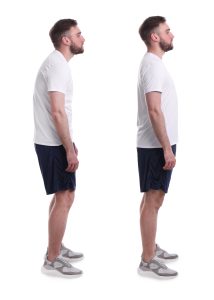From ancient healers to TikTok influencers, apple cider vinegar (ACV) has long been touted as one of nature’s few potentially cure-all remedies. The dark-gold, tangy liquid, produced by allowing apple juice to ferment twice: first by yeast, which turns the juice’s natural sugars into alcohol, and then by acetobacter bacteria, which transforms the alcohol into vinegar (or more precisely, acetic acid), is glorified for its various nutritional components, including organic acids, friendly bacteria, and trace minerals. For centuries, cooks have splashed it into pickles, salad dressings, and chutneys, while home remedy enthusiasts have discovered a wide range of surprising uses for apple cider vinegar, including preparing kid- and pet-friendly mosquito repellents, cleaning and declogging solutions, and even protecting furniture from cat damage.
Nevertheless, when it comes to health enthusiasts and scientific research, the focus has primarily been on ACV’s potential to help manage blood sugar and cholesterol levels, as well as promote weight loss, a claim that has pushed for the development of assorted ACV products, such as shots and gummies, into mainstream wellness culture. Yet, these potential health benefits seem to be only the tip of the iceberg when it comes to all that ACV has to offer, as anecdotal evidence hints at a broader portfolio of uses. From soothing sore throats to acting as a natural breath freshener, this article sheds light on seven unexpected health benefits of the vinegar that might have flown under your radar.
May support gut health

When it comes to gut health support, prebiotics and probiotics are key, as they play valuable roles in balancing the friendly bacteria in your gut (also known as your gut microbiota). A balanced gut microbiota might be able to prevent a variety of chronic diseases, such as allergies, inflammatory bowel diseases (IBD), and even mental health conditions like anxiety or depression. To achieve a healthy balance, your microbiota relies on probiotics, which are healthy microorganisms themselves, and prebiotics, which feed said microorganisms to help them thrive. As it happens, ACV may provide both, though evidence is limited.
On the one hand, being a fermented product, ACV could be considered a probiotic. This might be especially true for raw, unfiltered ACV varieties that still contain “the mother,” a cloudy substance comprising a mix of beneficial bacteria formed during the fermentation process (via UChicago Medicine). On the other hand, the vinegar’s acetic acid content acts as a prebiotic by helping create an environment in the gut that supports the growth of healthy microbes (per GoodRx). While more human research is needed, ACV’s role in gut health looks promising. If you’re curious about trying it, start by choosing raw, organic versions with the mother, and be sure to incorporate it into a fiber-rich, whole-food diet.
Could help naturally soothe sore throats

Sipping tea with honey and lemon is likely one of the most common home remedies for a sore throat. However, ACV might give tea a run for its money, as some people swear by its throat-soothing effects. According to Medical News Today, this may be due to ACV’s acetic acid content, which offers mild antibacterial properties that may help reduce the presence of harmful bacteria in the throat. In fact, test-tube studies show that solutions with as little as 1% of ACV might provide antibacterial effects against Escherichia coli, Staphylococcus aureus, Pseudomonas aeruginosa, and Bacillus subtilis (per Drugs.com).
Nevertheless, Healthline warns that while it may offer temporary relief from bacterial irritation and discomfort, ACV is not a cure for sore throats caused by viral infections, as they are not affected by its antibacterial properties. To give ACV’s throat-soothing properties a try, the site recommends preparing an ACV tea by adding one tablespoon of the vinegar and twice the amount of honey to a cup of hot water. Other variations to the recipe include swapping the honey and water for lemon juice and green tea, or adding coconut oil, ground ginger, or cayenne pepper to the drink. Alternatively, you could try ACV gargles by mixing the vinegar with warm salty water.
Might reduce skin irritation and acne when used topically

Among its multiple potential uses, ACV has become a go-to home remedy for a range of skin concerns, particularly psoriasis, acne, and eczema, due to its antibacterial and antifungal properties, as well as its alleged beneficial effects on skin barrier integrity and pH levels. The site explains that the vinegar’s acetic acid content may be the compound responsible for its beneficial effects, as its acidity may help balance the skin barrier’s naturally acidic environment, thereby protecting it from damage. However, there’s very little human evidence to back up the claims, and most recommendations are either mixed or based on anecdotal evidence.
For example, regarding psoriasis, the National Psoriasis Foundation states that, as long as you also keep using your prescribed treatment, applying a 1:1 dilution of organic ACV and water to the scalp may help relieve itchiness. However, when it comes to determining whether ACV is an effective treatment for acne, it is still unclear whether its antibacterial properties are strong enough to fight acne-causing bacteria (via Healthline). Lastly, some reports suggest that ACV mixed with water may prevent eczema flares, while others claim it actually irritates the skin. Thus, to err on the side of caution, be sure to talk to your healthcare provider before giving any ACV home remedy a try, especially if you’re already taking additional medications for your skin condition, to avoid any unwanted interactions or side effects.
























